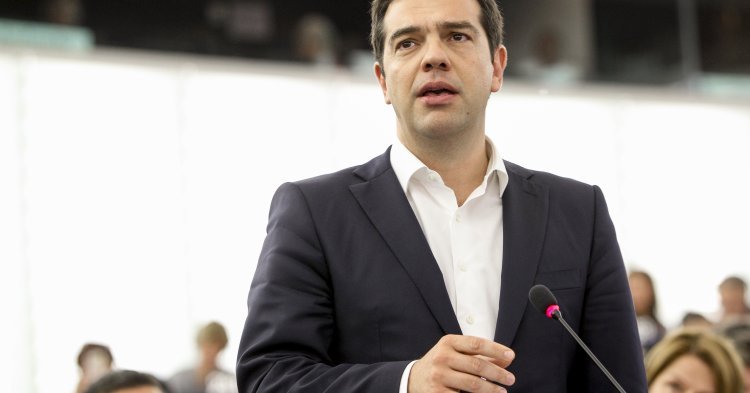At the beginning of the year the message was still a shock: Elections in Greece! The whole of Europe looked during the elections of January 2015 towards Athens. The Syriza party under the leadership of Alexis Tsipras competed to end the euro rescue politics which seemed to be “without alternative”. The economic reforms were supposed to be suspended, the dictated austerity ended and the debts of Greece discarded. The demands marked nothing less than a political earthquake which nearly resulted in a Greek national bankruptcy and the exit out of the Euro as a consequence.
The political climate between Greece and the EU shows meanwhile an altered picture. After the latest act in the Greek debt drama Alexis Tsipras appears to the EU as a possible guarantor for a reassurance of the smouldering euro crisis. How did it come to this transformation?
The new enemies of Syriza
During the finance and euro crisis Greece got into the dependency of the European member states. The European partners came to Greece’s help. However as a countermove they demanded reforms. For the overhaul of the Greek economic and administration system, international institutions were called to help and oversee the implementation of the reforms. Against all these actors Syriza brought itself into position. It won the elections from January especially because they persuaded their voters to support them against the fight against their enemies abroad. The Troika, the international money donors and the financial markets - Alexis Tsipras wanted to take it up with all of them. Highest goal: Debt cut. However the creditors stayed hard. Europe was very close to a Grexit and Syriza was defeated.
In the forefront to the next elections the climate has changed. Alexis Tsipras wants to continue fighting and calls upon the Greeks to re-elect him in the office. The head of government searches for his new enemies within the country. He asks his voters for support in the “fight against corruption and inequalities, against tax fraud and bureaucracy”. With these demands he is on the same line of demands as the member states, which rely on the implementation of economic reforms to build up the competition in Greece.
The Greek are staying loyal to Tsipras
It belongs to the many contradictions and tribulations of the euro crisis that Tsipras in spite of his political change of course can apparently rely on the trust of the population. He is so far the favourite for the next election in September. The charismatic left politician has achieved to keep his credibility in front of his voters in spite of the political defeat. The Syrizia is however on the verge of a split. Around a third of his faction have refused to support Tsipras in the last voting. The re-election gives the head of government the opportunity to remove his political enemies from the party. These could in September move into the parliament under a new name. And in fact again in old function - as left opposition. In this way Tsipras would have in a pragmatic way made the way free for a reform politics in line of the EU.
The euro crisis continues
If the reform politics will in the long term lead to a way out of the euro crisis is debateable. In the coming years the Greek state is supposed to make privatisations, increase the taxes and especially save. With the economic surplus the state is supposed to consolidate its household and pay its debts from its creditors. In the first battle the donor countries put the Greek government into its place. No political price was too high to keep Greece further in the debt service. Now the Greek government wants to fight the interstate economic numbness, the encrusted bureaucracy and the corruption. Even with the support of the European partners it will be a hard fight for Alexis Tsipras and Syriza.






Follow the comments: |
|
